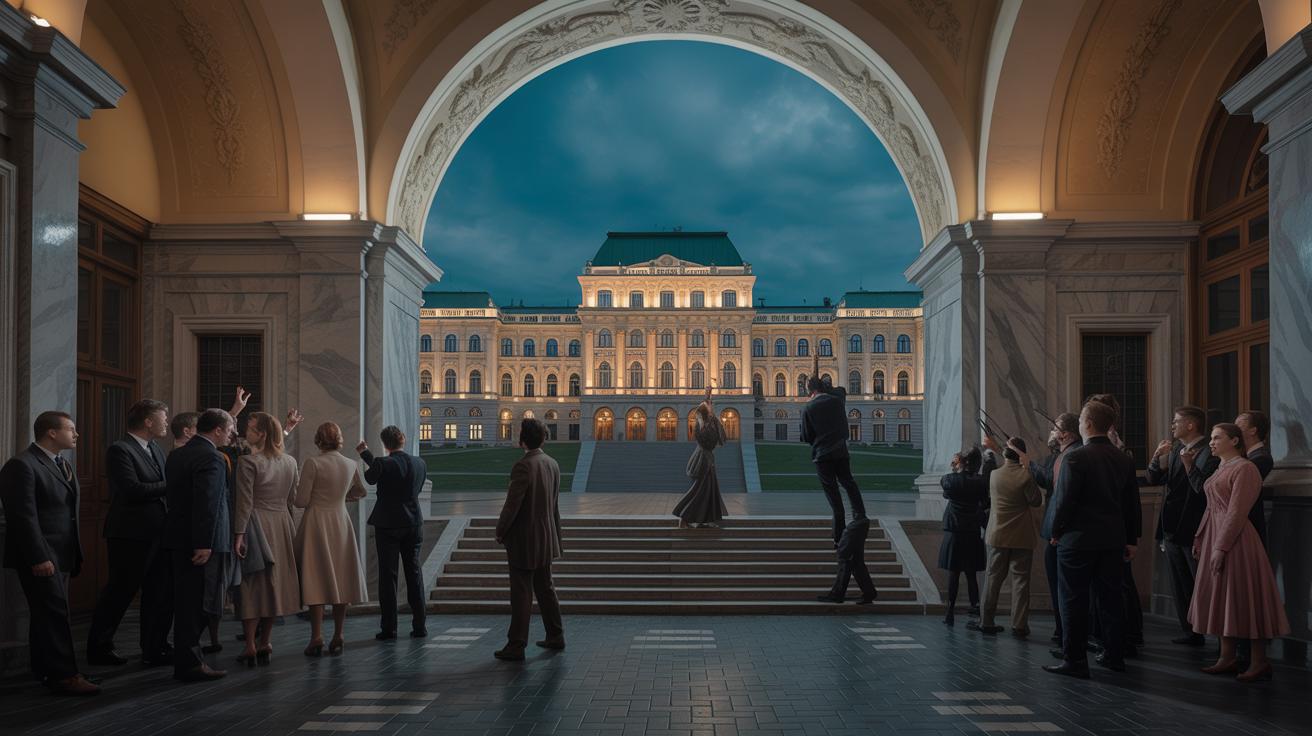What You Need to Know
- 🎭 Far-right influence in Slovakia’s cultural sector leads to the dismissal of key figures, alarming the arts community.
- 🇭🇺 In Hungary, Prime Minister Viktor Orban has reshaped the cultural landscape, aligning it with nationalist ideologies and imposing censorship.
- ⚠️ The Bratislava Declaration calls on the European Union to address the crisis threatening artistic freedom across member states.
- 🌍 These developments serve as a cautionary tale, highlighting the risk of political control over culture spreading beyond Slovakia and Hungary.
- 🤝 International communities are urged to unite in preserving artistic freedoms and resisting political encroachments on cultural institutions.
In recent times, Slovakia and Hungary have witnessed dramatic shifts in their cultural sectors, raising significant concerns across Europe. With far-right influences permeating through these nations’ cultural landscapes, the arts, historically a bastion of freedom and expression, now face unprecedented challenges. This movement, characterized by the dismissal of key cultural figures and a shift towards nationalistic priorities, highlights broader issues of political control and cultural censorship. As these changes unfold, the implications for democracy and artistic freedom in Slovakia, Hungary, and potentially beyond, are alarming. This article delves into the nuances of these developments and their broader impact on European cultural identity.
Slovakia’s Cultural Dismissals: A Sign of Political Control
In Slovakia, cultural institutions are experiencing a wave of changes driven by political motives. The firing of Matej Drlička, director of the Slovak National Theatre, marked a significant turning point. This dismissal, lacking any clear explanation, fueled concerns about political interference in cultural affairs. Drlička’s removal is part of a larger pattern where several directors of cultural institutions have been let go, ostensibly to promote more “Slovak culture.” This purge appears to be a strategic move by the government to consolidate control over cultural narratives and limit freedom of artistic expression.
The impact of these dismissals extends beyond mere personnel changes. They signify an alarming shift towards political normalization within the cultural sector, where arts and culture are being reshaped to align with nationalist ideologies. As Slovakia grapples with these changes, the broader European community watches with concern, recognizing the potential for similar trends to gain traction elsewhere. The implications for Slovakia’s young democracy are profound, as the erosion of cultural freedom threatens to undermine the very foundations of its democratic institutions.
Hungary’s Cultural Landscape Under Orban’s Shadow
Hungary’s cultural sector has long been under the influence of Prime Minister Viktor Orban, whose tenure has seen a gradual tightening of control over artistic expressions. Since returning to power in 2010, Orban has systematically reshaped Hungary’s cultural narrative to reflect nationalist ideals. This approach extends beyond mere censorship; it involves a comprehensive restructuring of cultural institutions to ensure they align with government-approved messages. The effects of this control are far-reaching, impacting everything from film funding to the thematic content of artistic works.
One of the most notable examples of Hungary’s cultural shift is its anti-LGBTQ legislation, which has sparked widespread protests and highlighted the government’s willingness to impose its values on the cultural sector. These legislative measures, combined with the selective allocation of funding to projects with strong ties to the ruling party, have marginalized many artists and filmmakers. The restrictive environment has forced some creatives to relocate to other countries, leading to a potential brain drain that could stifle Hungary’s cultural innovation for years to come.
The Broader European Impact: A Cautionary Tale
The developments in Slovakia and Hungary serve as a cautionary tale for the rest of Europe. The erosion of cultural freedom in these countries underscores a broader trend of increasing political influence over the arts. This trend threatens to spread beyond Slovakia and Hungary, posing a risk to the cultural integrity of other European nations. The European Union, recognizing the gravity of the situation, has been urged to take protective measures to safeguard artistic freedom across member states.
The Bratislava Declaration, a call to action aimed at the EU, emphasizes the urgent need to address this cultural crisis. It highlights the destructive potential of allowing political forces to dictate cultural narratives and calls for immediate intervention to prevent irreversible damage to Europe’s democratic cultural structures. As cultural leaders and organizations rally behind this declaration, the hope is that collective action can stem the tide of political interference and preserve the rich cultural diversity that defines Europe.
A Call to Action for Cultural Preservation
As Slovakia and Hungary navigate these turbulent times, the role of international communities becomes increasingly crucial. Cultural organizations and advocates must unite to support the preservation of artistic freedoms and resist political encroachments. The situation calls for a concerted effort to protect cultural institutions from becoming tools of political agendas. By fostering dialogue and collaboration, the international community can help ensure that the arts remain a space for open expression and innovation.
In the face of these challenges, it is imperative to consider the long-term implications of political control over culture. What does the future hold for nations where cultural narratives are dictated by political interests? The answer lies in the collective ability to defend the principles of artistic freedom and resist attempts to stifle creativity. As these countries grapple with the consequences of cultural censorship, the world watches closely, pondering the next chapter in the ongoing struggle for cultural autonomy.
As Slovakia and Hungary confront these cultural changes, the international community stands at a crossroads. Will the efforts to safeguard artistic freedom prevail, or will political control continue to shape cultural narratives? The answer will determine the future of cultural expression not only in these nations but across Europe. In this era of political influence, how can the global community effectively support and protect the integrity of artistic expression?
Did you like it?4.6/5 (21)







10 comments
hunter
Thnx for the post. It’s a wake-up call for all of us. Democracy needs our constant vigilance!
jason5
Orban’s Hungary sounds like a dystopian novel. Are there any artists still able to create freely?
AvaMoonlight
How come more countries aren’t speaking out against this? Feels like democracy is being tested.
alexanderempress
History repeating itself? How can we stop this cycle of political control over culture?
luke
This makes me appreciate the cultural freedom we have elsewhere. Let’s not take it for granted! 😊
jamesessence
What can ordinary people do to support artistic freedom in Slovakia and Hungary?
xavierraven
Looks like Slovakia and Hungary are taking a page from history’s least favorite playbook. 🙄
Grayson4
Wow, this is shocking! How are artists in these countries responding? Are there any underground movements?
Nathan_Shadow
Thanks for shedding light on this issue. It’s scary to see how quickly freedom can be eroded. 🌍
LoganAstral9
Is there any hope that EU interventions can actually reverse this trend, or is it too late?